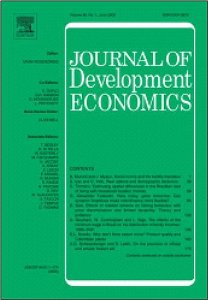This post is part of a continuing series on The Books that Have Shaped My Thinking.
It’s the summer, so I have time to read, both for work and for pleasure, and I have time to read books instead of just journal articles and blog posts. This made me realize that while a lot of my thinking has been shaped by things that I have read in journal articles (economics is an article-based field) and in blog posts (there is no better means of spreading important ideas quickly), a large part of my thinking has been shaped by books, which often contain more exciting ideas than journal articles–because they face less strict of a review process, books can be more daring in their claims, and thus have more chances of causing you to change how you view the world.
So I decided to write this series of posts on books that shaped my thinking. I talked about development books last week; this week I will talk about food and agriculture. Some recommendations are very general; others are eminently personal. I just hope you can find one or two that will also shape your own thinking. I’m sure I am forgetting a lot of important books I have read and which have also shaped my thinking, but I made this list by taking quick look at the bookshelves in my office. Conversely, some of the books in this list also appeared in my previous post on The Books that Have Shaped My Thinking.
